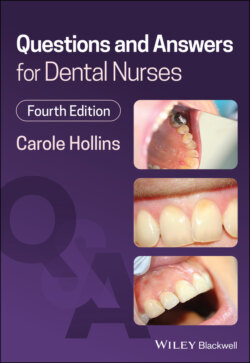Читать книгу Questions and Answers for Dental Nurses - Carole Hollins - Страница 25
Answers Multiple choice questions
Оглавление1 The correct answer is D. The duty of candour was introduced after the Francis Inquiry into failings in basic patient care were exposed at Mid Staffordshire Hospital, where many patients died as a result of poor care over some considerable time but staff failed to recognise problems and report issues appropriately.
2 The correct answer is D. The responsible person should be the employer or a senior dentist who has the overall task of ensuring that the complaints procedure of the workplace is followed correctly for every complaint received. The actual handling of the complaint can be delegated to another member of staff, as the complaints manager, but the responsible person must check that the correct procedure is followed.
3 The correct answer is E. Acknowledgement of receipt of a complaint must be made within a few working days to the complainant. A written report of the investigation into the complaint and the conclusions reached by the workplace must be sent by recorded delivery to the complainant once the investigation is completed.
4 The correct answer is D. Storing the records in a central complaints file allows easy access to the paperwork for any relevant incident and maintains a system of good ‘housekeeping’. Although a reference to a complaint can be noted in the patient’s records, the actual record of the complaint should not be stored within the patient’s records. The storage time for complaints records should be in line with the records management policy of the workplace.
5 The correct answer is C. When the complainant is unhappy with the conclusion of the workplace’s in‐house investigation, they have the right to take the matter further and make a formal complaint. The workplace must then provide the necessary contact information for either the NHS commissioning body, the Dental Complaints Service (for private patients) or the Health Service Ombudsman.
6 The correct answer is E. With the best will in the world, mistakes happen from time to time. The most important point for all concerned is to learn lessons from the mistake – how it happened, why it happened, what particular events allowed it to happen at that time and so on. Analysing this information retrospectively should allow the team to work out how the incident can be prevented in the future.
7 The correct answer is C. Social media is available to everyone and is a relatively uncontrolled platform for making comments about anything, both good and bad. Comments are best given directly to the workplace or to the relevant regulator. The Care Quality Commission actively encourages patients (and their carers or guardians) to contact them about the care they receive from all health and social care providers and expects all dental workplaces to have opportunities in place for their service users to make comments directly to them – especially using patient satisfaction surveys and written feedback such as ‘thank you’ cards.
8 The correct answer is E. The GDC expects all complaints to be handled and investigated in a timely manner, and complainants should be notified of this when their complaint is first acknowledged. When timescales alter, such as if a defence organisation becomes involved in the matter, the complainant should be notified promptly of these alterations to be kept abreast of the situation.
9 The correct answer is B. The Commissioning body in any geographical area is the local area team responsible for the operational management of NHS services in that area (including dentistry). All are overseen by the NHS Commissioning Board, which in turn is overseen by the Department of Health.
10 The correct answer is A. An apology at the receipt of a complaint indicating the workplace is sorry the patient is unhappy or aggrieved about the service they have received is acceptable, but this cannot be seen as an admission of liability.
11 The correct answer is A. Acknowledgement of receipt of a complaint must be made to the complainant within a few working days of its receipt. They must then be kept informed of how the complaint will be dealt with, who will be involved in the investigation and the expected timescales involved in investigating and concluding the report.
12 The correct answer is B. The Consumer Rights Act 2015 covers the provision of services to customers, including the provision of dental treatment (services) to customers (patients). It applies when a complaint has been found to be valid.
13 The correct answer is B. Although written records must be kept of all complaints received and their investigations and results, the number of complaints received and/or resolved is not required to be on display to patients in the workplace. This information should be held in the complaints folder and must be accessible to regulators such as the Care Quality Commission.
14 The correct answer is C. Principle 5 covers patients’ expectations of the dental workplace if they have to make a complaint. They expect to be taken seriously when they complain and expect matters to be investigated thoroughly by the workplace. They should also be given contact information for other organisations such as the GDC and Care Quality Commission if they wish to take the matter further.
